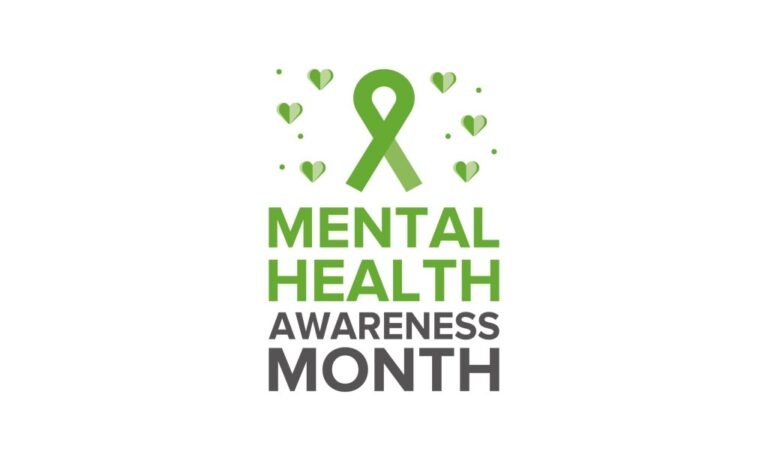Photo courtesy of Hegira Health, Inc.
May, nationally recognized as Mental Health Awareness Month, is one of several months of the year that are designated nationally each year to address mental health issues, such as illness, wellness, children, the elderly, as well as suicide and substance use prevention. Each month of designation facilitates campaigns to unite advocates and raise awareness, in order to improve the lives of individuals.
Each year, Mental Health America develops a theme for Mental Health Awareness Month. This year, “Look Around, Look Within,” which draws our attention to the impact of our environment, a fitting next direction after last year’s theme “Back to Basics.” ”, which offered fundamental knowledge about mental health and mental health problems.
Connecting our experiences and interpretation of our environments to mental well-being is not a new concept; the process and our understanding of it are at the heart of many evidence-based therapeutic interventions. We know that the world around us, both our small, intimate world and the larger one of which we are all a part, impacts our mental health by changing our perception of our life, affecting our sense of control, our stability, our emotions and confidence.
Upon discovery of the widespread negative impact of the COVID-19 pandemic, many influential groups joined the network of mental health professionals, including educators, law enforcement, local government agencies, state and federal, as well as the media. Together we have accomplished some very successful and far-reaching mental health awareness work. Through the creation of this larger partnership, the wall of stigma surrounding seeking mental health care was somewhat broken down as symptoms and needs were attributed to outside environmental influence.
As a strong advocate for mental wellness and anti-stigma, I support every day being designated as Mental Health Awareness Day. Mental health is part of the human condition.
We have important and ubiquitous mental health influencers that increased mental health awareness would impact. While we applaud our work during the COVID-19 crisis, we must maintain this momentum. We must continue to draw our attention to the number of people suffering from mental health problems or negative symptoms linked to other negative events pervasive in our daily environment, such as the increasing frequency and/or threat of violence with which we are subjected and our increasing dependence on electronic communications to the detriment of human relationships.
We still have a staggering number of people reporting mental health issues, and according to the Michigan Department of Health and Human Services, up to 50% of adults and children are not reporting these issues. A 2023 study published in Higher Ed found that 71% of students surveyed report experiencing stress, anxiety, and/or depression.
To be our best selves, with so many people affected by mental health issues every day throughout our lives, actress Glenn Close said it best: “What mental health needs is It’s more sunshine, more frankness and more conversations without shame. Suicide prevention studies conducted by the CDC showed between 2018 and 2020 a decrease in the rate of suicide deaths in the United States for the first time since 2000. This achievement is an example of the impact of awareness campaigns on prevention.
What you can do to increase mental health awareness in your community:
• Open communication about mental health topics by sharing with friends and family on your social media page.
• Volunteer with one of the many nonprofit mental health organizations in your community.
• Talk to your service providers about the importance of mental health awareness and screening. You can watch a free online screening at www.mhanational.org.
• Attend a walk or event of a local support or mental health awareness group in your community. www.NAMI-MI.org is a great place to start your search.
• Highlight the need in your workplace for mental health awareness opportunities, training, task forces and policies.
• Encourage your local politicians to prioritize mental health resources in your community.
• Be an advocate for anti-stigma campaigns by correcting someone using stigmatizing language or actions.
We want to hear from you. Do you have questions about mental health or substance use or would you like to see a particular topic covered in the monthly Hegira Health column? Email us at Askhegira@hegirahealth.org.
About the Author Carol Zuniga, MS, LLP, CEO of Hegira Health, Inc. is a licensed psychologist with over 30 years of experience in the healthcare industry. Hegira Health, Inc., is a leading provider of behavioral health care services with clinics throughout West Wayne and Downriver communities. Visit www.hegirahealth.org.
